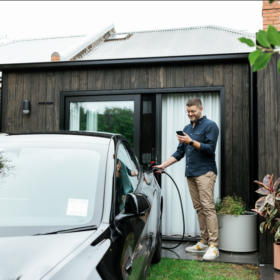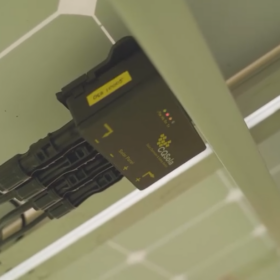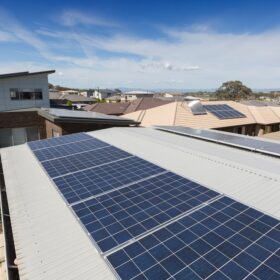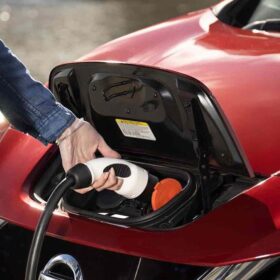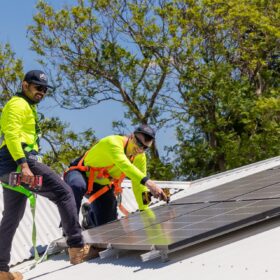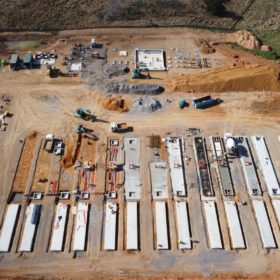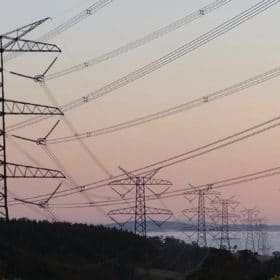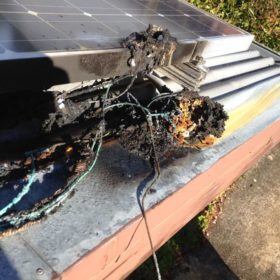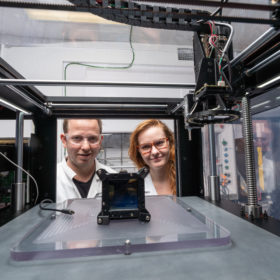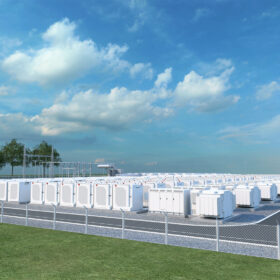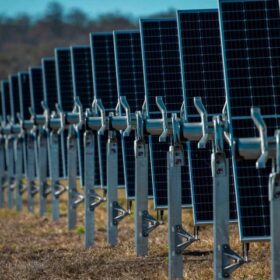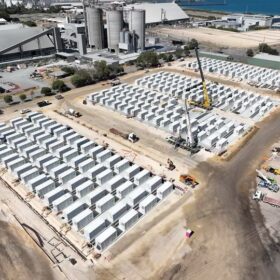Batteries on wheels trial gets $3.2 million boost
Over the next three years energy retailer and tech company Amber Electric will trial a software solution for electric vehicle smart charging and bi-directional vehicle-to-grid services to enable consumers using their cars can buy and sell energy to the grid.
ANU partners with Aussie startup CQSola on solar-to-hydrogen research
Australian National University researchers will put their heads together with Queensland tech company CQSola to find ways to accelerate commercialisation of a direct solar-to-hydrogen system as part of a newly funded project.
Community battery rollout reaches national capital
The federal government’s plan to deploy 400 community batteries across the nation to soak up excess solar generated on neighbourhood rooftops has reached the Australian Capital Territory with sites for three new battery energy storage systems unveiled.
Vehicle-to-grid tech offers potentially lucrative market for EV fleet owners
Australian electric vehicles could earn up to $12,000 in a single year using vehicle-to-grid technology to provide frequency regulation services to the National Electricity Market according to a report published by the Australian Renewable Energy Agency.
Australia’s power future could be virtually guaranteed
The severe heatwave that moved across Australia in recent weeks, initially in Western Australia, Queensland and then New South Wales, highlights that it is only going to get tougher to maintain a secure, reliable electricity system as our climate warms and demand for energy continues to increase.
Canberra big battery significantly delayed due to connection compliance issues
Neoen’s Capital battery project in Canberra is facing significant delays due to connection compliance testing, with the company flagging potential for it to pursue damages from EPC contractor Doosan GridTech. The completed battery was expected to be operational in early 2023.
AEMC proposes raising price caps to ensure market reliability over energy transition
The Australian Energy Market Commission (AEMC) has proposed increasing price caps on the country’s main electricity market. This is meant to allow investors to respond to fill gaps created by ageing coal generation.
Substantial increase in solar fires caused by DC isolators recorded in state data
Data shows a sharp increase in the number of fires caused by the DC isolators that separate the grid from solar panels. ABC News gathered state-by-state data revealing a dramatic increase in fire incidents in the last 12 months.
Six ACT companies awarded grants from innovation fund to commercialise promising tech
The ACT government has awarded over a million dollars to support the commercialisation of technologies from six upcoming renewable companies. Round three of the territory’s $12 million innovation fund includes support for a startup which has developed a 3D printer capable of printing electronics.
Eku lands contract to deliver 500 MWh Canberra big battery
Venture capital fund Macquarie Group’s new battery storage platform Eku Energy has been tapped by the Australian Capital Territory government to deliver the next stage of the Big Canberra Battery ‘ecosystem’ which will support the ongoing rollout of large-scale renewables and rooftop solar.
